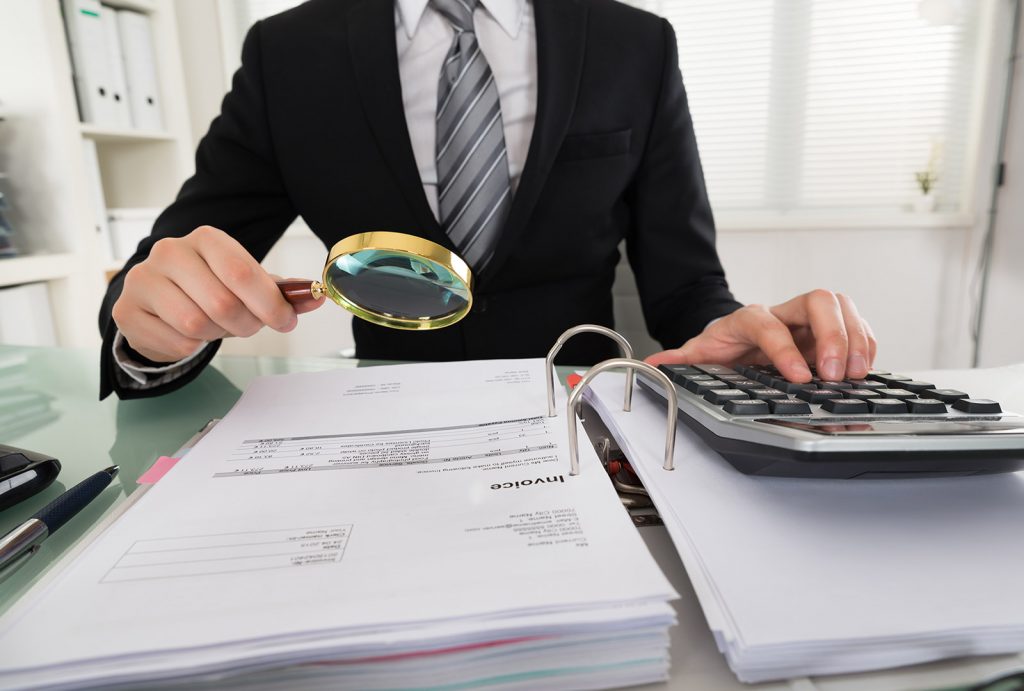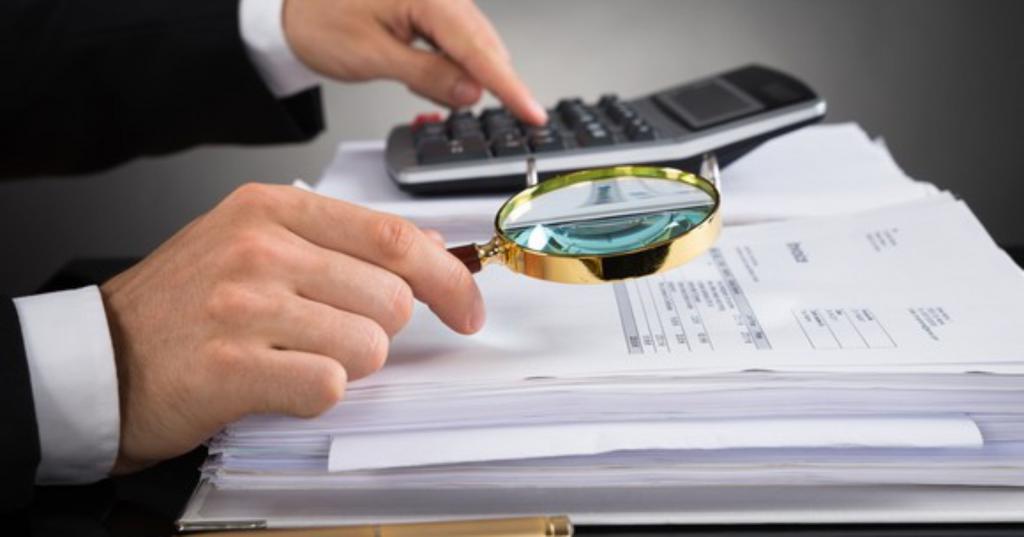How is tax inspection performed according to current legal regulations?

Tax inspection is an important activity to help ensure the correctness of tax administration. Let’s find out with Lawyer X the legal provisions on tax inspection through the following situation: “Hello, Lawyer! I would like to ask How is tax inspection performed according to current legal regulations?. Does the competent authority issue the tax inspection decision? What are the rights and obligations of subjects related to tax inspection?Thanks for your answer.”
Legal grounds
Viet Nam Law on Tax Administration
Cases of tax inspection
– A tax offence is suspected.
– Việc thanh tra là cần thiết để giải quyết khiếu nại hoặc thực hiện các biện pháp phòng, chống tham nhũng.
– The inspection is necessary for tax administration on the basis of classification of risks in tax administration.
– The inspection is requested by State Audit Office of Vietnam, State inspectorate or another competent authority.
Who are entitled to issue tax inspection decisions?
– Thủ trưởng cơ quan thuế các cấp được quyền ra quyết định thanh tra thuế.
– The tax inspection decision shall contain:
+ Legal basis for the tax inspection;
+ The inspected entity, scope and objectives of the inspection;
+ Duration of the inspection;
+ The chief and members of the inspectorate.
– The tax inspection decision shall be sent to the inspected entity within 03 working days from the day on which it is signed.
– The tax inspection decision shall be announced within 15 days from its issuance date.

Thời hạn thanh tra thuế
– Thời hạn thanh tra thuế thực hiện theo quy định của Luật Thanh tra. Thời hạn thanh tra là khoảng thời gian kể từ ngày công bố quyết định thanh tra thuế đến ngày kết thúc thanh tra.
– Trường hợp cần thiết, người ra quyết định thanh tra thuế (sau đây gọi là “Người ra quyết định thanh tra thuế”) có thể gia hạn theo quy định của Luật Thanh tra.
Nhiệm vụ, quyền hạn của người quyết định thanh tra thuế
– The tax inspection decider has the following duties and entitlements:
+ Instructs and supervise the inspectorate’s implementation of the tax inspection decision;
+ Request the inspected entity to provide information, documents, reports and explanation for relevant issues; request other organizations and individuals to provide relevant information and documents they have;
+ Request professional opinions on the issuers relevant to the content of the inspection;
+ Order suspension or request a competent person to order suspension of an operation if it is deemed to cause material damage to interests of the State, the lawful rights and interests of other organizations and individuals;
+ Take actions or request a competent person to take actions and supervise the implementation of such actions;
+ Settle complaints (if any) against the chief and members of the inspectorate;
+ Suspend or replace the chief or member of the inspectorate if he/she fails to satisfy the requirements for participation in the inspection, commits violations of law or is found related to the inspected entity, or cannot participate in the inspection for other reasons;
+ Draw a conclusion about the inspection;
+ Trance the case to a criminal investigation authority if a criminal offence is suspected, and send a written notice to the People’s Procuracy at the same level;
+ Implement the measures specified in Article 121, 122 and 123 of Law on Enterprises;
+ Request credit institutions where the inspected entity opens their accounts to freeze such accounts if there are reasonable grounds for suspecting that the inspected entity attempts to liquidate their assets in a manner that defies the competent authority’s decision to confiscate money or assets.
– When performing the duties and entitlements mentioned in Clause 1 of Article 116 Law on Tax Administration, tax inspection deciders shall be held responsible for their decisions.
Duties and entitlements of the chief and members of the inspectorate
– The chief of the inspectorate has the following duties and entitlements:
+ Organize the investigation and instruct the members to implement the tax inspection decision;
+ Propose necessary measures to the inspection decider to ensure accomplishment of the objectives;
+ Request the inspected entity to present the practice certificate, certificate of business registration, certificate of enterprise registration, cooperative registration certificate, investigation registration certificate, license for establishment and operation, provide information, documents, reports and explanation for relevant issues;
+ Issue a record on the violations committed by the inspected entity;
+ Carry out stocktaking of the inspected entity’s assets relevant to the inspection;
+ Request other organizations and individuals to provide relevant information and documents they have;
+ Request a competent person to impound the violator’s money, belongings, licenses if such impoundment is deemed necessary to stop the violations or examine the evidence;
+ Seal the investigated entity’s documents if violations are suspected;
+ Order suspension or request a competent person to order suspension of an operation if it is deemed to cause material damage to interests of the State, the lawful rights and interests of other organizations and individuals;
+ Request the credit institutions where the inspected entity opens their accounts to freeze such accounts if there are reasonable grounds for suspecting that the inspected entity attempts to liquidate their assets;
+ Impose administrative penalties in accordance with law;
+ Submit a report on the inspection results to the inspection decider and take responsibility for the accuracy and objectivity of such report;
+ Implement the measures specified in Article 122 of Law on Enterprises.
– Members of the inspectorate have the following duties and entitlements:
+ Perform the tasks assigned by the chief;
+ Request the investigated entity to provide information, documents, reports and explanation for relevant issues; request other organizations and individuals to provide relevant information and documents they have;
+ Propose necessary measures within the chief’s duties and entitlements prescribed in Clause 1 of Article 117 Law on Tax Administration to the chief to ensure accomplishment of the objectives;
+ Propose solutions for the issues relevant to the inspection;
+ Submit reports on the performance of their tasks to the chief and take legal responsibility and responsibility to the chief for the accuracy and objectivity of such reports.
Rights and obligations of inspected entities
– The inspected entity has the right to:
+ Provide explanation for the issues relevant to the content of the inspection;
+ File complaints against the decisions and actions made by the inspection decider, the chief or member of the inspectorate during the inspection; file complaints against the conclusion or post-inspection decision in accordance with regulations of law on complaints; the post-inspection decision still has to be implemented while the complaint is being handled;
+ Receive the inspection record and request explanation for the contents thereof;
+ Refuse to provide information and documents that are not relevant to the inspection; information and documents that are state secrets, unless otherwise prescribed by law;
+ Claim damages in accordance with law;
+ Report violations committed by the head of the tax authority, the chief or member of the inspectorate in accordance with law.
– The inspected entity has the responsibility to:
+ Comply with the tax inspection decision;
+ Fully and accurately provide information and documents requested by the tax inspection decider, the chief or member of the inspectorate and take legal responsibility for the accuracy of the information and documents provided;
+ Comply with requests, conclusions and handling decisions of the inspection decider, the chief and member of the inspectorate, and competent authorities;
+ Sign the inspection record.
Contents of the Tax inspection conclusion
– Within 15 days from the receipt of the tax inspection result, the inspection decider shall issue a conclusion unless the conclusion has to be given by another competent authority. The conclusion shall contain:
+ Assessment of the inspected entity’s compliance to tax laws;
+ Draw a conclusion about the inspected contents;
+ The nature and severity of the violations, reasons, responsibility of the violators;
+ Actions taken or penalties to be imposed by a competent person as prescribed by law.
– The inspection decider is entitled to request the chief and members of the inspectorate to submit reports; request the inspected entity to provide explanation before giving the conclusion or making the post-inspection decision.
What are cases of re-inspection?
– The following persons are entitled to decide re-inspection in case violations of law are suspected after a conclusion has been given:
+ Chief Inspector of the Ministry of Finance, at the request of the Minister of Finance, shall decide reinsertion of the cases concluded by the Director of the General Department of Taxation or Customs within the management of the Ministry of Finance;
+ The Director of the General Department of Taxation or Customs shall decide re-inspection of the cases concluded by Directors of Provincial Departments;
+ The Director of a Provincial Department shall decide re-inspection of the cases concluded by Directors of Departments of the districts in the same province;
+ The decision on re-inspection shall have the contents specified in Article 114 of Law on Enterprises. Within 03 working days from the day on which such decision is signed, the issuer shall send it to the inspected entity. The decision on re-inspection shall be announced within 15 days from the day on which it is signed. Such announcement shall be recorded in writing by the inspectorate.
– A re-inspection shall be carried out in the following cases:
+ There are serious violations against the inspection procedures;
+ Mistakes were made when giving the initial conclusion;
+ The conclusion is contrary to the evidence collected during the initial inspection, or there are signs of high risks according to the risk assessment criteria;
+ The inspection decider, the chief or member of the inspectorate deliberately falsifies the documents or gives a conclusion against the law;
+ It is suspected that serious violations of law committed by the inspected entity were not discovered during the initial inspection.
– Time limit and duration of re-inspection:
+ A re-inspection must not be carried out after 02 years from the day on which the initial inspection conclusion is signed;
+ The duration of a re-inspection is specified in Article 115 of Law on Enterprises.
– During the re-inspection, the inspection decider, the chief and members of the inspectorate have the duties and entitlements specified in Article 116 an Article 117 of Law on Enterprises.
– The re-inspection conclusion shall be given and announced as follows:
+ The re-inspection conclusion shall be given in accordance with Article 119 of Law on Enterprises. The conclusion shall specify the nature and severity of the violations, reasons for violations, responsibility of the inspecting entities, the conclusion and proposals.
Within 15 working days from the day on which the re-inspection conclusion is signed, it must be sent to the heads of the same-level and superior regulatory authorities;
+ The re-inspection conclusion shall be announced in accordance with inspection laws.
Services of Lawyer X
Prestigious professional services: Firstly, the team of consultants and consultants for many years in the field of civil status, and customer support.
On-time: Certainly, with the motto “Get your lawyer right at your fingertips”, we ensure the service always performs on time. The rights and interests of customers always come first.
Cost: Besides, Lawyer X’s service costs are highly competitive; depending on the nature of the particular case. So, we want our guests to have the best possible service experience. Therefore, costs which guaranteed to be the most suitable and economical for customers.
Confidentiality of client information: Finally, all personal information of clients Lawyer X will be 100% confidential.
If you need any further information, please contact LSX Law firm: at +84846175333 or Email: [email protected]
Frequently asked questions
Cases of tax inspection include:
– A tax offence is suspected.
– The inspection is necessary to settle a complaint or implement anti-corruption measures.
– The inspection is necessary for tax administration on the basis of classification of risks in tax administration.
– The inspection is requested by State Audit Office of Vietnam, State inspectorate or another competent authority.
Heads of tax authorities at all levels are entitled to issue tax inspection decisions.
The tax inspection decision shall be sent to the inspected entity within 03 working days from the day on which it is signed.
Conclusion: So the above is How is tax inspection performed according to current legal regulations?. Hopefully with this article can help you in life, please always follow and read our good articles on the website: lsxlawfirm.com




